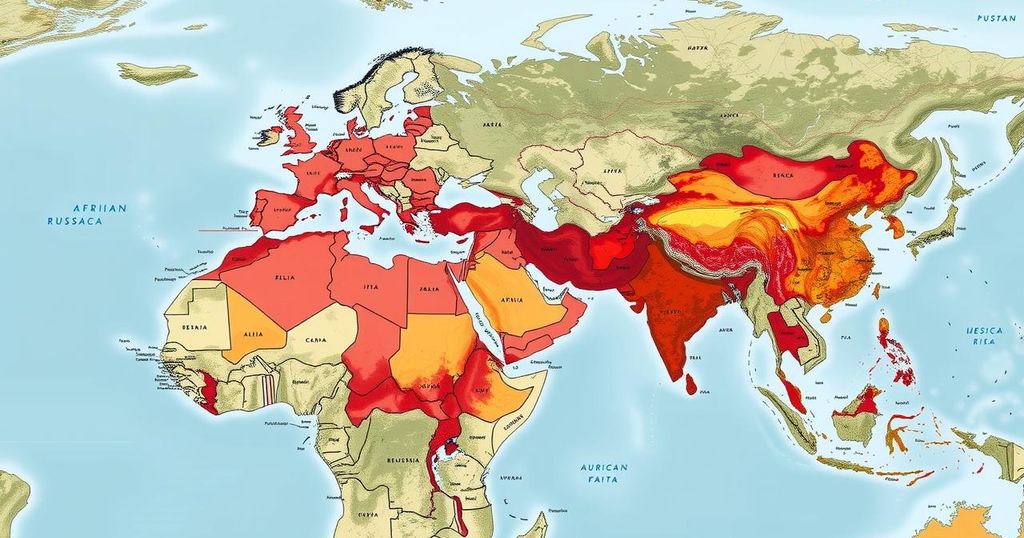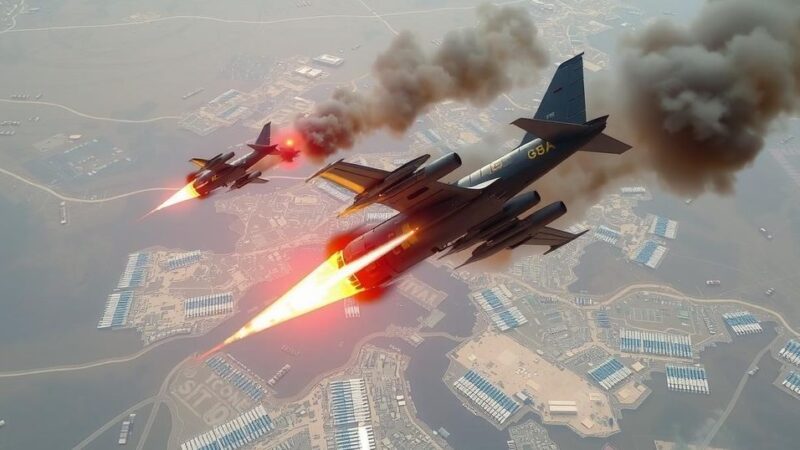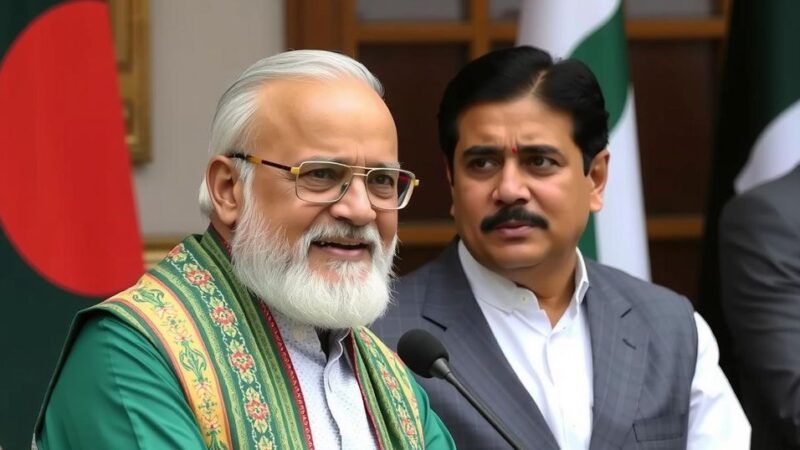The article examines Russia’s faltering presence in Africa, illustrating how overstretched mercenaries and rising violence undermine its power. Despite initial strategic gains, the situation worsens for civilians in countries like Mali and Burkina Faso. Russia’s influence wanes as African leaders look towards partnerships with other nations, highlighting a fundamental shift away from reliance on Moscow.
The current Russian presence in Africa, primarily supported by mercenaries, reveals a facade of power that is increasingly fractured. Reports confirm an escalating loss of life among Russian soldiers involved in conflicts with Islamist groups in the region, undermining the Kremlin’s carefully crafted image of being Africa’s liberator. Instead of offering genuine support, Russia’s strategy is characterized by self-serving interests that exploit resource-rich governments for profit while failing to substantially enhance security or development for local populations.
As Russia’s military engagement in Ukraine stretches its resources thin, its effectiveness in Africa steadily diminishes. Countries like Mali, where Russian mercenaries have been active, witnessed a deterioration in civilian safety, reflecting a pattern of rising violence, rather than the stabilization promised. Despite brief tactical successes, such as the capture of strategic towns, Russian forces are often overstretched, leading to significant losses and fostering a sentiment of uncertainty among African leaders contemplating their relations with Moscow.
The Kremlin’s reliance on propaganda to cultivate an image of strength is now challenged by internal factors in African nations. The governance dynamics have shifted, with leaders seeking to diversify their foreign partnerships, notably gravitating toward Turkey and other nations instead of reinforcing their ties with Russia. The void left by the death of Wagner chief Yevgeny Prigozhin and the reorganization of Russian mercenary forces further complicates this landscape, marking a potential decline in Russian influence.
While Russia has claimed to be fundamentally engaged in various African countries, the actual political and military presence appears tenuous. The limited number of Russian operatives per nation and their dependency on local mercenaries indicate that operational capabilities are insufficient compared to the demands on the ground. This vulnerability may contribute to a changing narrative, as African countries weigh the consequences of aligning with a weakening power.
The article discusses Russia’s engagements in Africa, particularly through the use of mercenaries and military tact, portraying it as a strategy that is not just self-serving but also ultimately ineffective in truly aiding the African nations involved. With Moscow’s military focus diverted to Ukraine and internal political changes within African nations, the Kremlin’s image as a formidable power in the region is crumbling.
In summary, Russia’s aspirations to position itself as a significant power player in Africa are increasingly being challenged by the realities of its diminished military capability, rising civilian unrest in nations it engages with, and shifting political strategies among African leaders. As alliances diversify and local grievances grow, Moscow’s hold on the continent appears increasingly tenuous, revealing the superficiality of its projected influence.
Original Source: foreignpolicy.com







